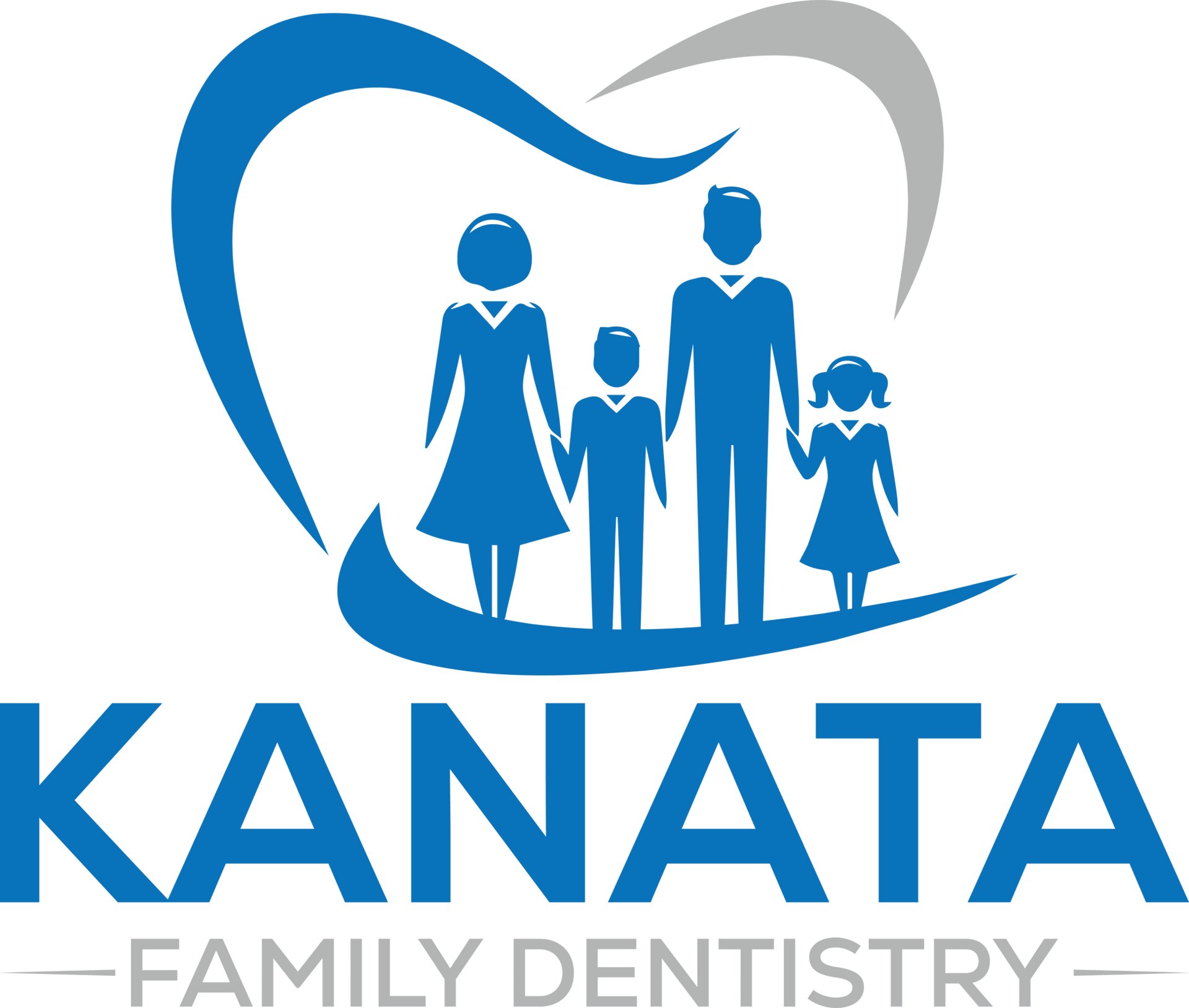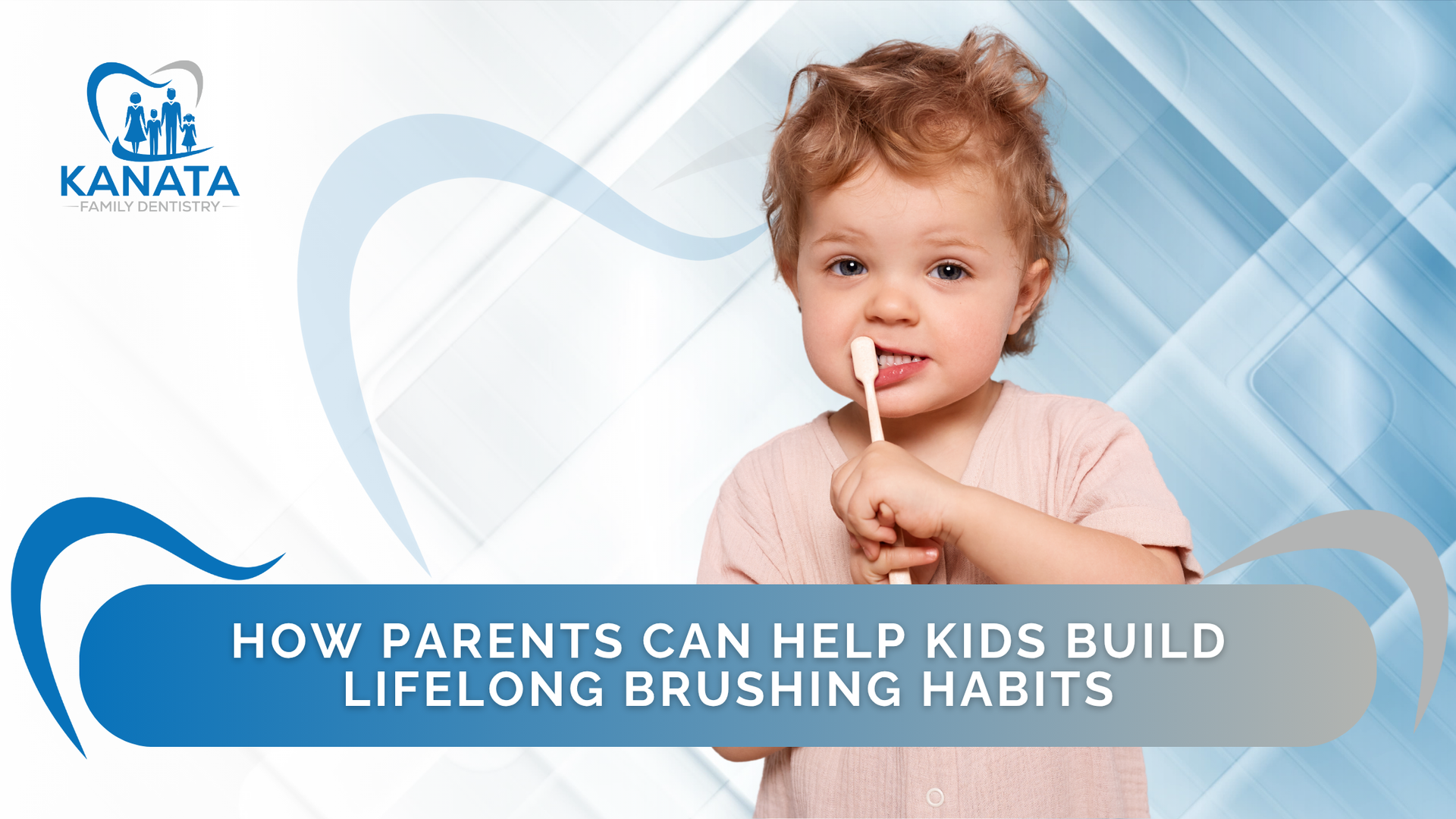The Dental Risks of Mouth Piercings and How to Avoid Them
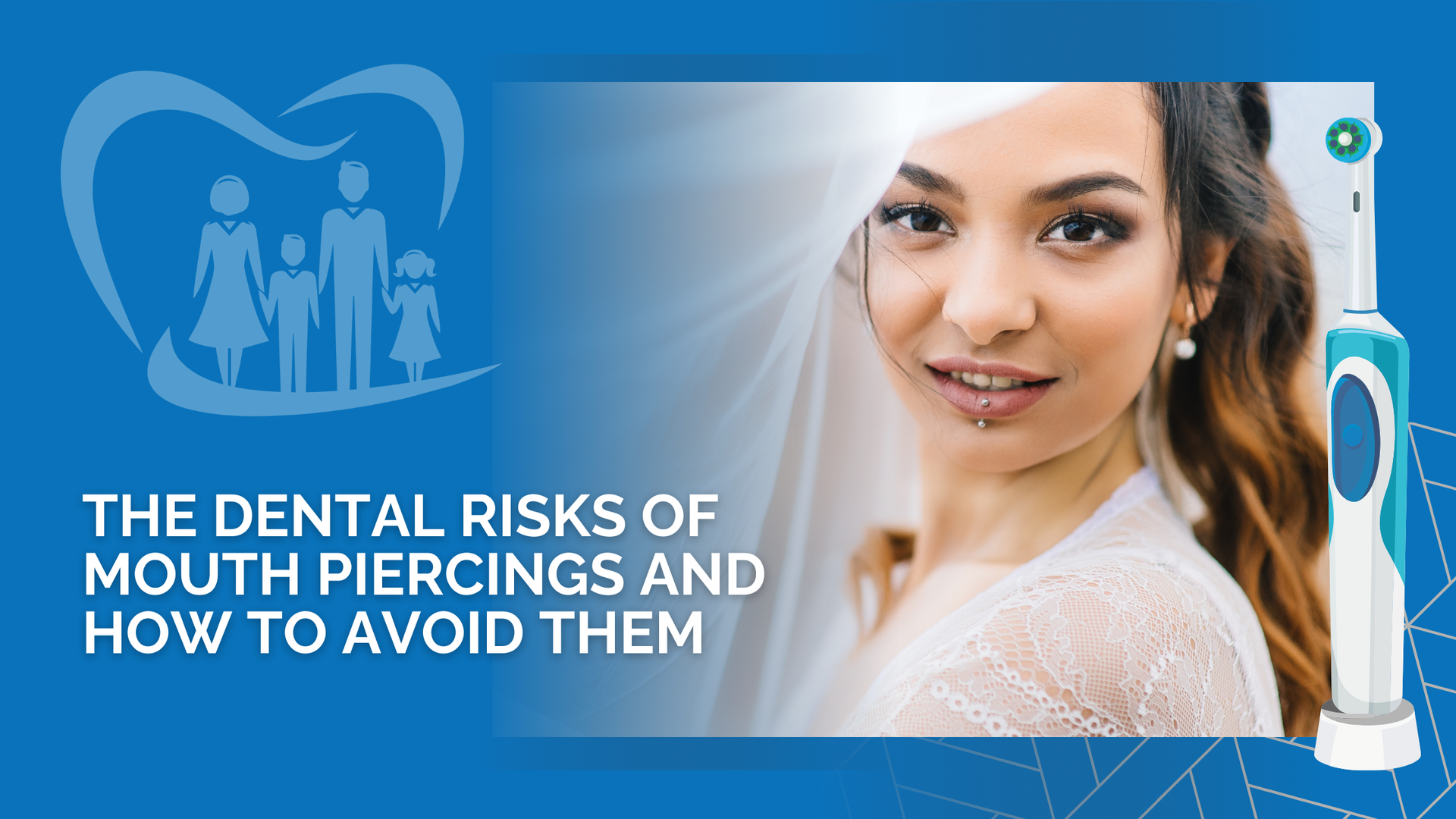
Source: Dr. Marketing
Mouth piercings are a bold and personal way to express yourself, with tongue, lip, and cheek piercings being among the most popular choices. While they may look appealing and help showcase individuality, piercings in the oral cavity can have a significant impact on your oral health. Introducing jewelry into such a sensitive area comes with unique challenges, requiring careful consideration, consistent maintenance, and a clear understanding of potential risks.
At Kanata Family Dentistry, we believe in educating our patients on how oral habits, including piercings, can affect their health. This comprehensive guide will explore whether mouth piercings are advisable, provide practical care tips, explain the risks involved, and outline do’s and don’ts to help you maintain a healthy smile while embracing this form of self-expression.
Are Mouth Piercings Advisable?
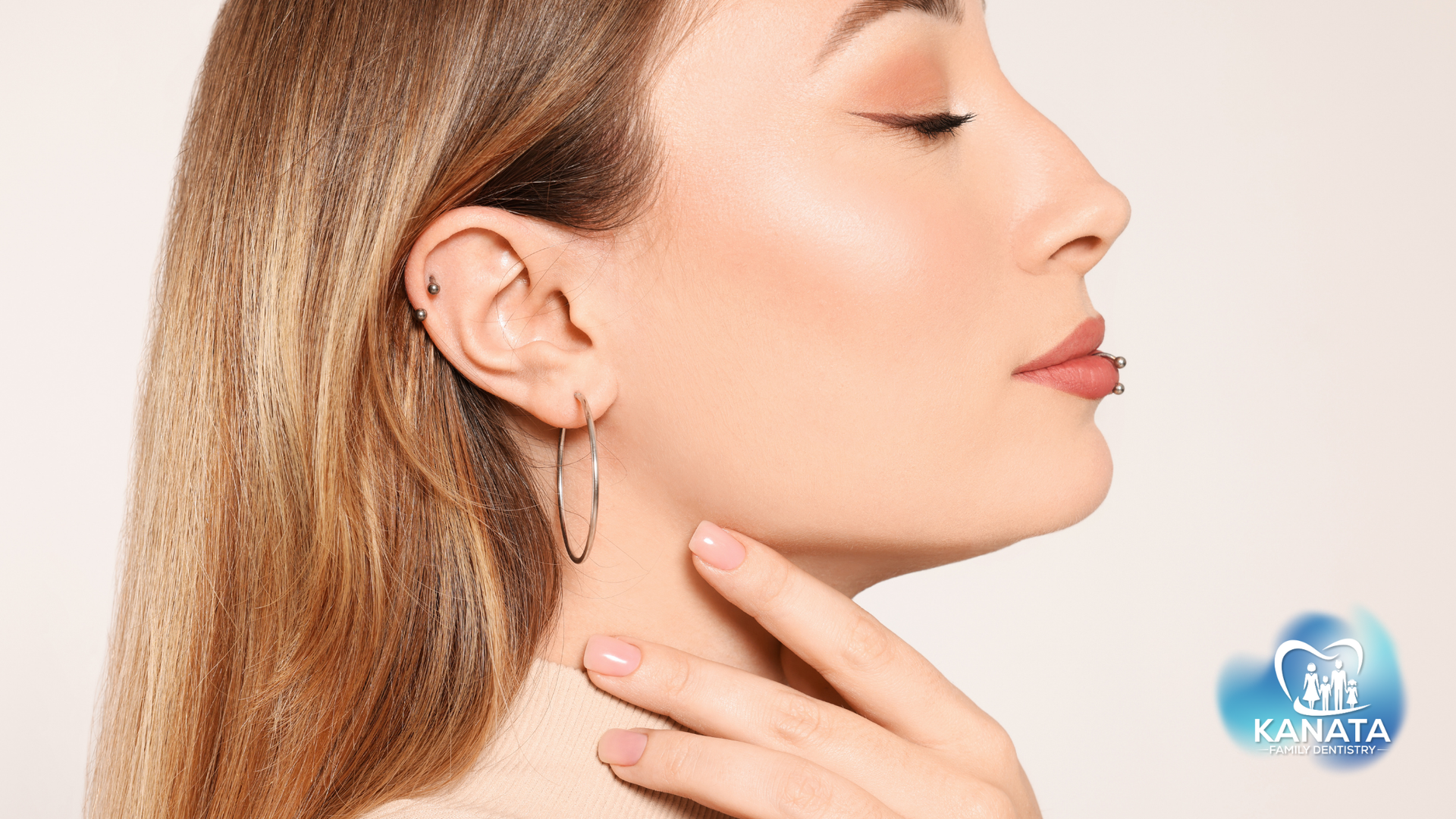
From a dental perspective, mouth piercings are generally not recommended due to the numerous risks they pose. The mouth is a delicate and complex environment containing soft tissues, hard enamel, and a thriving bacterial ecosystem. Piercings can disrupt this balance, leading to issues such as infections, gum recession, and enamel erosion.
Mouth piercings require a significant commitment to proper care and hygiene to prevent complications. Even with diligent maintenance, there is still a risk of long-term damage to the gums and teeth.
That said, we understand that piercings can hold personal or cultural significance for many individuals. If you decide to get one, taking the right precautions and adopting strict aftercare routines can help minimize risks. At Kanata Family Dentistry, we encourage patients to consult with us before making decisions that could impact their oral health.
The Do’s and Don’ts of Mouth Piercings
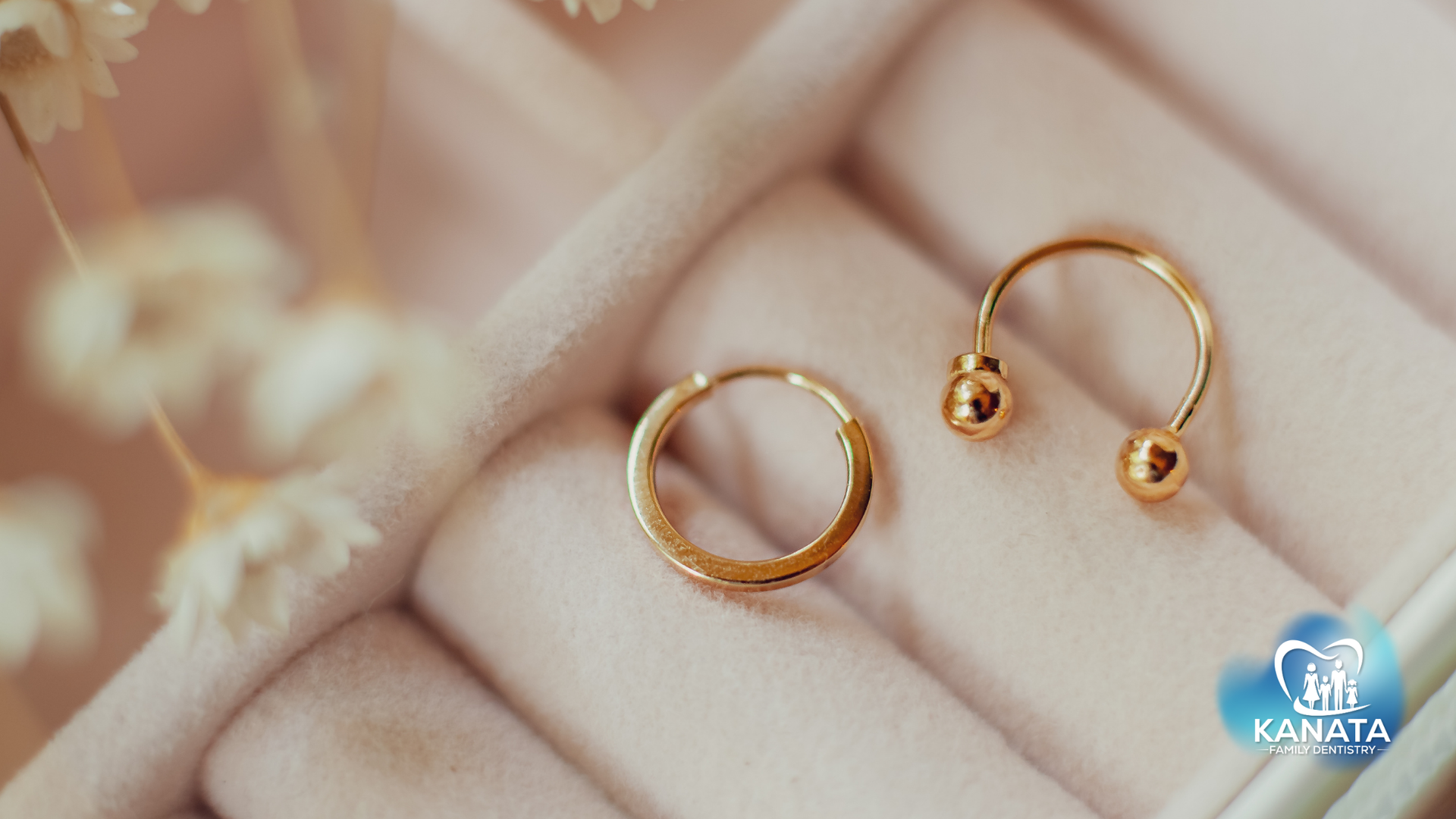
If you are considering a mouth piercing or already have one, it is essential to follow strict guidelines to protect your oral health. These do’s and don’ts will provide you with practical, detailed advice for managing your piercing responsibly. Following are the recommended practices.
Choose a Professional and Hygienic Piercer
Before getting a piercing, ensure that the studio is clean, licensed, and follows strict sterilization practices. The piercer should use sterilized tools and wear gloves to minimize the risk of infection. Professional placement is crucial, as improper positioning can lead to irritation and long-term issues like gum recession.
Use Biocompatible Jewelry
Opt for high-quality materials like titanium, surgical-grade stainless steel, or niobium. These materials are less likely to cause allergic reactions or irritation and are easier to clean. Avoid inexpensive jewelry made of nickel or other reactive metals, as these can cause complications.
Practice Excellent Oral Hygiene
Maintaining oral hygiene is vital when you have a mouth piercing. Brush your teeth twice a day using a soft-bristled toothbrush and non-abrasive toothpaste to prevent plaque buildup. Rinse your mouth with an alcohol-free, antibacterial mouthwash after meals to reduce the risk of infection and keep the piercing site clean.
Inspect Your Piercing Regularly
Check your piercing site for any signs of infection, such as swelling, redness, or unusual discharge. Early detection can prevent minor issues from escalating into more serious complications.
Remove Jewelry During Physical Activities
Taking out your piercing during sports or high-impact activities can help prevent accidental injuries. Mouth jewelry can pose a significant risk if it is knocked out of place or if you bite down on it during physical activity
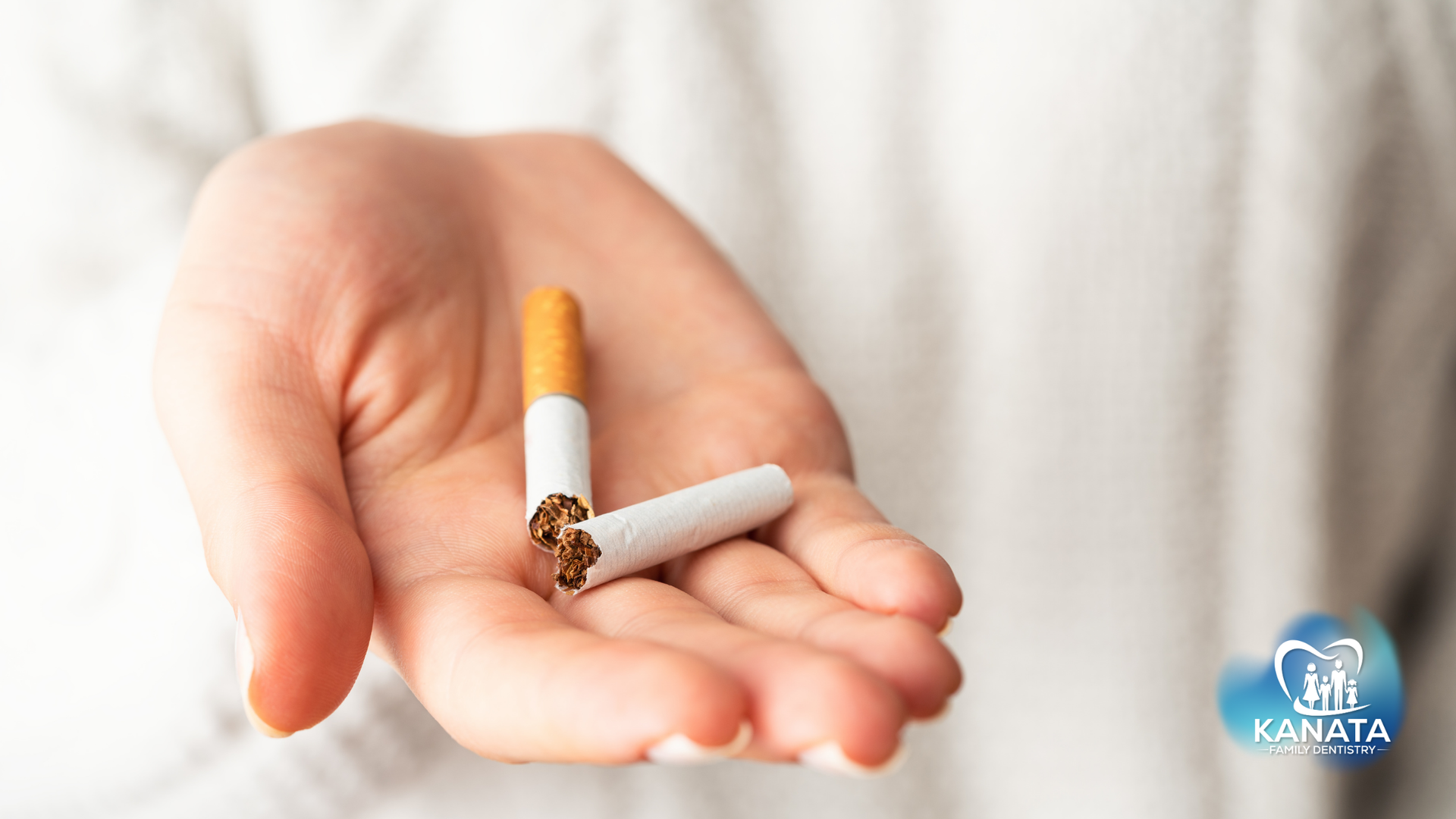
Below are essential points to consider for maintaining safety and oral health with mouth piercings. Keeping these in mind can help prevent potential complications.
Do Not Play with the Jewelry
It may be tempting to touch or move your piercing, but doing so can irritate the surrounding tissues and increase the risk of damage to your teeth and gums. Constantly clicking your piercing against your teeth can lead to chipping, cracks, and enamel wear over time.
Avoid Hard or Sticky Foods
During the healing period, steer clear of foods that are hard, crunchy, or sticky, as they can dislodge the piercing or cause discomfort. Even after healing, limit your intake of these foods to avoid putting unnecessary stress on your teeth and piercing.
Do Not Skip Aftercare
Neglecting proper cleaning routines can lead to infections and delayed healing. Following aftercare instructions from your piercer and dentist is essential for avoiding complications.
Refrain from Smoking and Alcohol
Smoking and alcohol can irritate the piercing site and delay the healing process. Both substances also contribute to the buildup of harmful bacteria in the mouth, increasing the risk of infection.
Do Not Ignore Warning Signs
Pain, persistent swelling, or discharge from the piercing site could indicate an infection or another issue that requires immediate attention. Ignoring these symptoms can result in more severe complications.
The Risks of Mouth Piercings

Mouth piercings come with several risks that can affect not only your oral health but also your overall well-being.
Infections
The mouth is a moist environment filled with bacteria, making it a prime location for infections. When bacteria enter the wound created by a piercing, it can result in redness, swelling, and pain. Severe infections may even spread to other parts of the body, including the heart, in rare cases. Proper aftercare is crucial to reducing the risk of infection.
Gum Recession
Piercings, particularly tongue and lip jewelry, often come into contact with the gums. Over time, this constant irritation can cause gum tissue to recede, exposing the roots of your teeth. Gum recession not only affects the appearance of your smile but also increases the risk of sensitivity, decay, and periodontal disease.
Tooth Damage
Mouth jewelry can damage teeth in several ways. Clicking the jewelry against enamel, biting down on it accidentally, or even just regular contact over time can lead to chipping, cracking, or fractures. In severe cases, this damage may require restorative treatments such as crowns or fillings.
Nerve Damage
Improperly placed piercings can damage nerves, leading to numbness or loss of sensation in the tongue or lips. While this is sometimes temporary, it can also become a permanent issue if the damage is severe.
Allergic Reactions
Some individuals are allergic to the metals used in piercings, resulting in itching, redness, and swelling. Choosing hypoallergenic materials like titanium can help minimize the risk of an allergic reaction.
Long-Term Care for Mouth Piercings

Once your piercing has healed, maintaining its cleanliness and monitoring for potential complications remain essential. Consistent dental visits are particularly important for identifying and addressing issues like enamel wear, gum irritation, or the accumulation of plaque around the piercing site.
At Kanata Family Dentistry, we work closely with patients to ensure that their oral health remains a priority, even with piercings. By combining professional cleanings with personalized advice, we help patients protect their smiles while embracing their unique sense of style.
Balancing Expression and Oral Health

Mouth piercings are a unique way to express yourself, but they require a commitment to diligent care and a strong understanding of potential risks. While dental professionals typically advise against mouth piercings due to their impact on oral health, those who choose to get them can still take steps to minimize complications.
By maintaining excellent oral hygiene, selecting high-quality jewelry, and following professional aftercare guidelines, you can reduce the risks of infections, gum recession, and tooth damage. Regular dental checkups are essential for identifying and addressing issues early, ensuring that your piercing does not compromise your smile in the long term.
At Kanata Family Dentistry, we are dedicated to helping patients make informed decisions about their oral health. If you have questions about managing your piercing or want to learn more about maintaining a healthy smile, schedule an appointment with us today. Together, we can find the best balance between self-expression and oral health, ensuring that your smile stays strong, confident, and beautiful for years to come.


